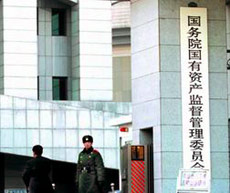
China's on-going experiment to standardize corporate governance of the major state-owned firms, most likely to follow the Temasek model, has entered a new era.
The board of directors in the first trial company is about to operate, according to sources with the State-owned Assets Supervision and Administration Commission (SASAC).
Documents concerning the relations between the board and the state shareholders, the evaluation measures and operational mechanism of the board will soon come out, said the sources.
SASAC will expand the experiment into 20 to 30 state-owned enterprises (SOEs) this year based on the experience of the previous seven pilot companies in 2004, and will try to set up boards of directors in all the 169 major SOEs by 2007, said officials with the agency recently.
Most of China's SOEs were registered according to the enterprise law featuring confusion of ownership and management. It is the fresh focus of China's decades-long SOE reform to clarify the rights and duties of the owners and the managers by standardizing corporate governance, mainly through establishment of boards of directors.
"SASAC is not only an investor in the SOEs, but also a shareholder of SOEs with diversified investors," said SASAC Vice Director Shao Ning, who noted that this is important in consolidating the supervision system of state-owned assets.
According to SASAC Director Li Rongrong, the foremost premise for SASAC to act as an investor is to set up boards of directors in SOEs, so as to separate ownership from management and let the board take charge of the operation of the SOEs.
The structure and operation of the SOE's board of directors may follow those of the state-owned Temasek Holdings of Singapore, insiders predicted. In fact, SASAC has sent some directors to be trained in Temasek Holdings.
The board of directors of companies under Temasek generally consists of civil servants and private entrepreneurs, with each accounting for 50 percent, said Zhang Chengyao, a researcher with the Chinese Academy of Social Sciences.
The civil servants, representing the interests of the state, consider more the fairness and the macro-situation of the nation, while the entrepreneurs guarantee the efficiency of the company among market competition, said Zhang.
According documents issued by SASAC in 2004, the boards of the trial companies should have at least two outside directors at the beginning. Some trial companies volunteered to skip over the transitional stage and asked for over 50 percent outside directors on their boards.
The boards of directors of the trial companies mainly have the following four rights: selecting managers, assessing the managers' performance, deciding the managers' payments, and making decisions on major investments and capital raising.
(Xinhua News Agency September 23, 2005)
|

